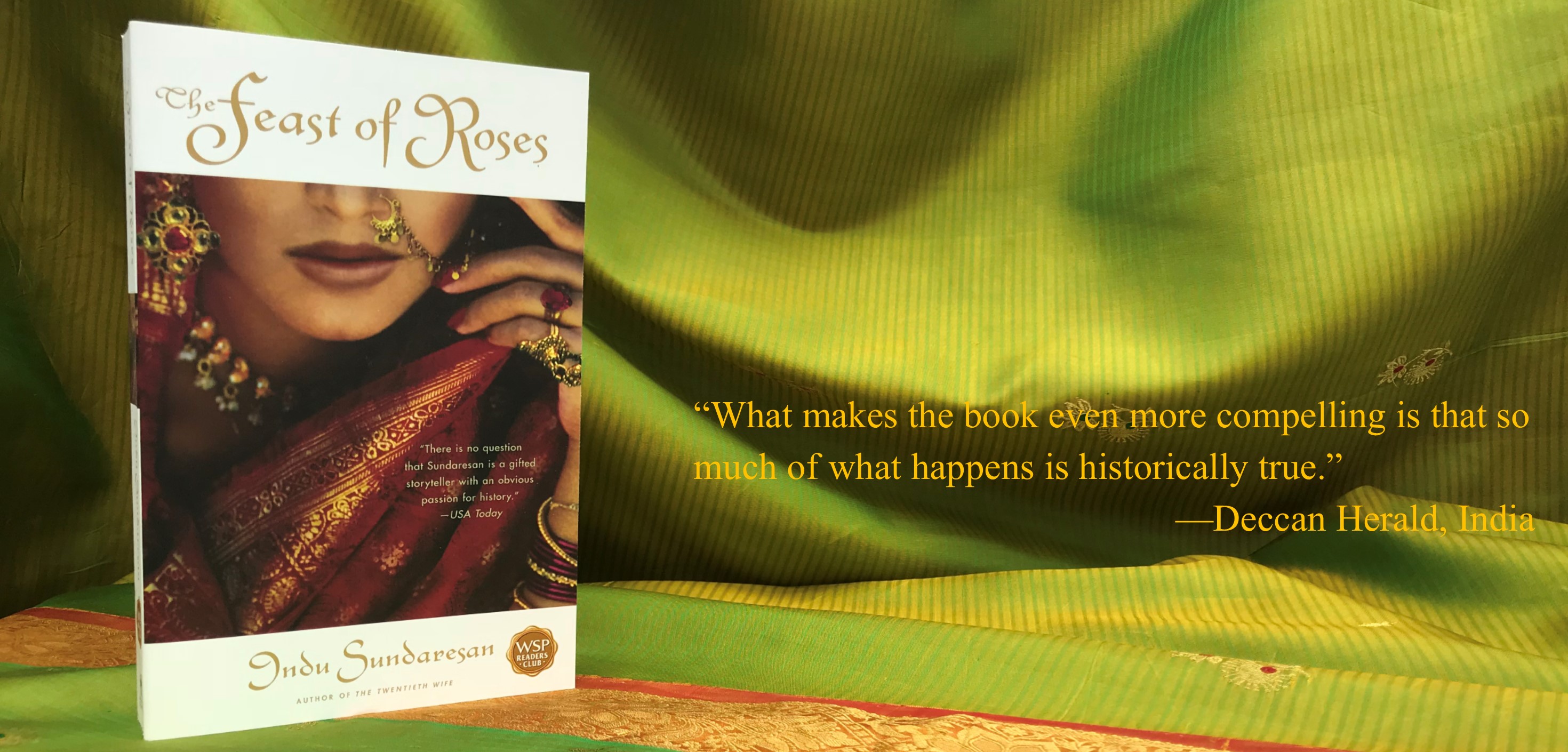Reading Group Questions from the paperback edition of The Feast of Roses.
- Mehrunnisa, Jahangir’s twentieth wife, has ambitions beyond the veiled silence behind the zenana (harem) walls. In chapter 1, the narrator explains: “All her life she had wanted the life of a man, to do what she wanted, to say what came to her mind without worry for consequences” (p. 5). How does Mehrunnisa eventually become the power behind the throne? Does she ever really acquire the “freedom” for which she wishes?
- In order to secure her rising power in the Empire, Mehrunnisa forms a junta, an alliance, with her father, brother, and Khurram, the heir apparent to the throne. She is certain that “her father and brother, could always be trusted. Their blood was hers” (p. 89). Discuss greed as a motivation and how it serves to break familial ties and form unlikely alliances.
- In her later years, when all her influence is lost, Mehrunnisa realizes that she faltered by “not consolidating her power among the women, in the women’s world in which she lived” (p. 378). Do you think she would have earned the support of the zenana women in her quest for power? Would you consider Mehrunnisa a pioneer for women’s rights?
- Marriages of Mughal India during the 1600s seem to be more about lucrative unions and less about love. But a few are fortunate enough to marry for love, as is the case of Jahangir and Mehrunnisa. Do you think Mehrunnisa exploits Jahangir’s love for her own advancement? Why is marriage so important to Indian women of this time?
- When a man, such as Emperor Jahangir, has twenty wives, there are bound to be rivalries, jealousies, and hierarchies among the women. Discuss the politics that occur in the zenana. How do you feel about polygamy? Considering the context, does it empower or demean women?
- Discuss the significance of “the feast of roses” as it occurs in chapter 10. What are the implications of Jahangir’s gesture? Why do you think the author chose to title the novel thus?
- Describe the nature of the relationships between the Indians and the English and Portuguese firangis, or foreigners. How did the foreigners view the Indians?
- Abul betrays his sister, Mehrunnisa, and aligns himself with Khurram, who, he hopes, will be the next emperor. Abul understands that “In being born a man, and being born…with no imperial pretensions, he could never change his status” (p. 322). Does this mean that women are at a social advantage since they can marry up?
- Discuss the male-female power dynamic. Why do you think both women and men are disturbed and threatened by Mehrunnisa’s power? Inevitably she seems to be disliked by almost everyone. Do you find Mehrunnisa a likeable character? Howe would you rate her performance as “queen”?
- Emperor Jahangir had once said that “kingship knew no kinship” (p. 291). Discuss the many rivalries for the throne. Out of all Jahangir’s sons, Khusrau, Parviz, Khurram, and Shahryar, who do you think truly deserves to be Emperor?


